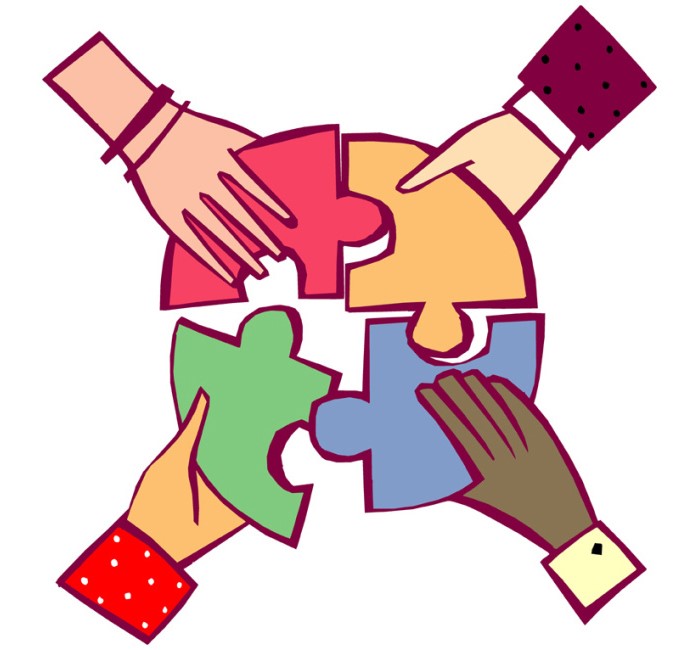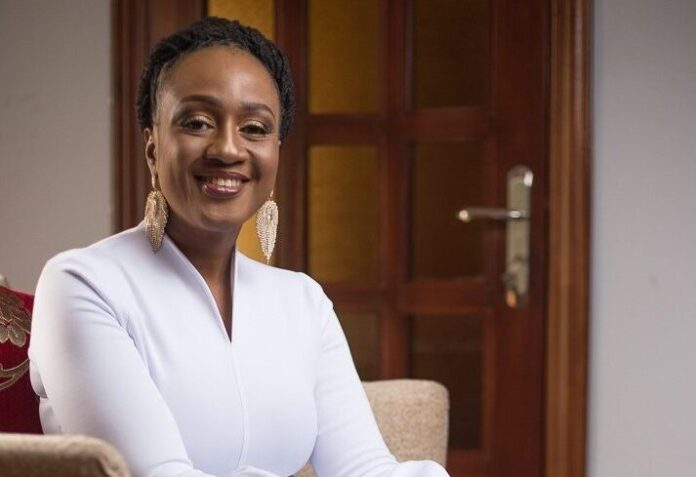When it comes to being excellent consistently in life, business, relationship, leadership and in all engagements, your soft skills are the driver that guides every single journey. Soft skills are the tools you need to show yourself as groomed, making impact and to make a difference in your space. Soft skills are required when you speak, sit, or having a day to day conversations. Every single touch point requires your soft skills. Soft skills in the workplace allow organisations to effectively and efficiently use their technical skills and knowledge without being held back by interpersonal issues, internal strife and poor public and market perceptions. Soft skills have become a subject of ever-increasing interest in diverse organisations due to the tangible results it produces. When it comes to soft skills perfection does not sell because soft skills are human skills. Usually, our communication is what limits our ability to nurture our best relationships whether at home or in the workplace. Soft skills development is intended to enable and enhance personal growth, contribution in learning and success in the workplace.
With the development pace of technology increasing daily with electronic forms of communication being quick, efficient and easy to use, the effort to build solid human connections seem to be gradually reducing. However, even with that, soft skills are still needed to bring out that energy and humane element with the usage of these electronic forms of communication that will make it feel like an in-person interaction for the sustenance of businesses. This shows that there is no substitute for genuine in-person interactions that convey thoughts and ideas with more clarity and understanding. Soft skills are now more essential to businesses and communities, even more so than hard skills as it is the determining factor that will sustain and move you up the ladder of success or otherwise.

McKinsey & Co, (n.d) explain soft skills as non-technical skills that enable someone to interact effectively and harmoniously with others, are vital to organisations and can impact culture, mindsets, leadership, attitudes and behaviours. These skills fall into the following categories:
- Advanced communication and negotiation skills
- Interpersonal skills and empathy
- Leadership and management skills
- Entrepreneurship and initiative-taking
- Adaptability and continuous learning skills
- Teaching and training skills
According to a McKinsey survey, reskilling significant portions of the workforce within the next 5-10 years will be required-tens of millions of mid-career, middle-age workers, particularly in advanced economies-with the development of soft skills a key element.
Each and every one has a strong set of soft skills that they can put to good use in their workplace. Are you aware of the soft skills set which are your strengths? These are some strong soft skills I teach at my Soft Skills University:
- Anticipation: you are going to get rejected at a point in life no matter where you find yourself. This is a mindset that must stay with you in interacting with people and in everything you do. When rejected never react by showing vulnerability or emotion. In business, relationships matter more than contracts so always anticipate and respond to issues instead of reacting to them.
- Attraction: one of the key things that make you reliable as a worker or employer is the connectivity, likeability, respectability and credibility factor. This has nothing to do with your physical attributes but everything that you project. People must first connect with you, they must like you, must respect you and then trust you before they can do business with you. Whenever you get the green light for these four foundations, people will buy everything else you have. You must never forget that you are the product of your business if you are an entrepreneur, and the ambassador for the organisation you work for if you are an employee.
- Introduction: how you introduce yourself- both to the market and everyone you work with is important. You must bring your internal stakeholders into your concept by how you interact with them – your speech and hand gestures. Your identity must be clear enough for your team to have a definition of you.
- Engagement: communication in the workplace cannot be emphasized enough. Your engagement comes from your appearance – visual, your behaviour – etiquette, communication – the things you speak about and your digital footprint.
Soft skills are not only developed in the workplace. They can be developed all around us as they are used in our daily activities wherever we find ourselves and regardless of whomever we are interacting with – family, friends, clients, acquaintances and strangers, colleagues at work, your superiors or business partners. Developing our soft skills should be important to us. The ways or methods through which we can develop our soft skills vary, especially in the workplace environment.
According to Forbes, most coaching interventions attempt to improve people’s soft skills, such as self-awareness, communication skills, or emotional intelligence. Therefore, an obvious starting point to evaluate the effectiveness of soft skills training is to examine whether coaching actually works. Luckily, scientists have also conducted meticulous reviews, aggregating the results of different interventions while examining the specific impact-both good and bad-of different variables. The results suggest that coaching has very strong effects on an individual’s career success and moderate-to-strong effects on performance. The best interventions use 360-degree feedback and internal rather than external coaches. Interestingly, neither the number of sessions, nor whether the sessions are virtual or face-to-face, played a significant role. In line, another review found that coaching significantly enhances coping skills, emotional wellbeing, and motivation. One of the fundamental tools that coaching provides is feedback, helping candidates identify key deficits, and where they must improve. This is rather important when it comes to soft skills, as there is only around 10% overlap between the skills people think they have, and the ones they actually have (e.g., creativity, intelligence, EQ, etc.).
Isspringsolutions also mentions that another effective yet simple way of developing soft skills is Peer (social) learning – to learn with other people. Research has shown there is a significant link between having fun in the workplace and informal learning. For example, launch a peer forum where employees will discuss soft skills in the workplace and how to achieve their full potential. They will have a place to ask questions and share stories to get peer – based feedback. For instance, an employee encountered a particularly difficult customer who got on his or her nerves. He or she can share his or her experience on the forum, discuss it with colleagues, and get useful advice for the future.
Here are some four soft skills that matter:
- CLARITY
This is saying and communicating by firstly preparing in your mind what you do not stand for, what you will not do and where you will not be. When you filter out what you do not want in your life, you are very clear as to where you are going. Identify what you will not do, where you will not go and what you do not stand for. This will help you make way for all the possibilities. The biggest fighter of your clarity is your generality. The very moment you are general about what you want to do you lose business clients.

- CURIOUSITY
The industry you are working in is not new; this applies also to the business you have started or about to start. It has people who have been there or doing it for years. Have you ever heard of the phrase, “Don’t reinvent the wheel?” That is actually true. Whichever workspace you find yourself, people have been in it before, some are still in it and others are now going for it. The key thing is to be curious and ask questions. Be adventurous and question everybody – from the topmost person to the janitor. Your knowledge about the industry is good; but it is what you know that affects the industry that matters most. This is because, it is that which will give you the skill to sell for your organisation or bring solutions that will uplift it.
- COMMONALITY
Companies or organisations do not necessarily look for achievement, they look out for alignment. When you are hired, employers want to work with you because they think you have something as a person that they need. So find that alignment and, communicate that clearly and consistently through your work and your relationship with the people you work with.
- POSITIONALITY
You must always position yourself in a way and in a space where people will like you from the onset – for instance your appearance and body language. Nature Neuroscience Journal has shown people make a decision to deal with you within 3 – 7 seconds of meeting you. This makes your positioning a very important soft skill to hone in the workplace.
The key to making our work easy, enjoyable and be rewarded for it is through the right use of our soft skills. We must make it part of our goals to learn the ones we do not have by observation and practice so that we can become versatile no matter the level in the work ladder that we find ourselves. Always remember, soft skills matter!
Are you ready for TRANSFORMATION?
Dzigbordi K. Dosoo: The H.E.L.P. Coach
Dzigbordi K. Dosoo is a Soft Skills Expert, Personal Impact, Professional Growth and Influence Expert specialising in Humanness, Entrepreneurship, Leadership and Power – H.E.L.P.
A career spanning over two decades, she has established herself as a Certified High Performance Coach, Speaker, Author, Wellness Expert and award-winning Entrepreneur with a clientele ranging from C-Suite Executives, Senior Management, Practitioners and Sales Leaders spanning 3 continents.
She is the Soft Skills Expert and Founder of Dzigbordi K. Dosoo (DKD) Holdings; a premier lifestyle business group with brand subsidiaries that include Dzigbordi Consulting Group& Allure Africa.
Dzigbordi has been featured on CNN for her entrepreneurial expertise. She is one of the most decorated female entrepreneurs in Ghana having being named “CIMG Marketing Woman of the Year” in 2009; “Top 10 most respected CEOs in Ghana, 2012; Global Heart of Leadership Award and, Women Rising “100 Most Influential Ghanaian Women”, 2017.
She can be reached on [email protected] and @dzigbordikwaku across all social media platforms.










